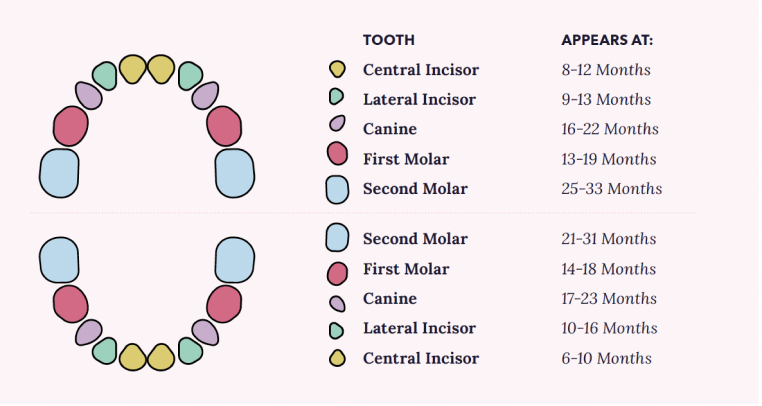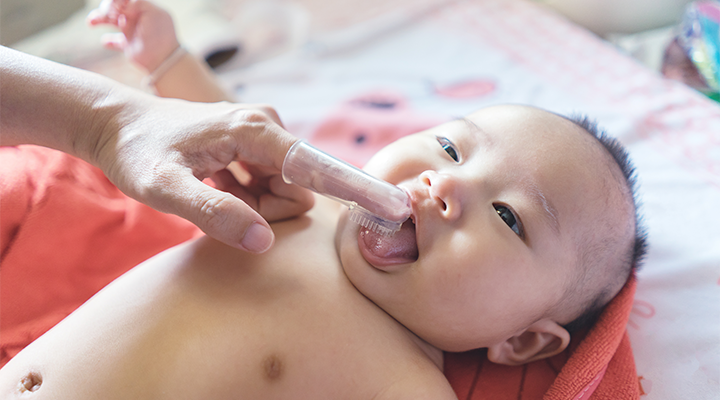Baby’s Oral Health
You know your baby better than anyone. If you think something is wrong or unusual, tell your baby's doctor. That's what they are there for.
When will my baby start getting teeth?
Babies usually get their first tooth around 6 months and will eventually have 20 teeth.
Here's a look at when each tooth typically comes in:

 TIP FOR PARENTS
TIP FOR PARENTS
Cool teething rings can help soothe your baby’s sore, swollen gums, and children's pain medication can also help.
Teething
When your baby starts getting teeth, they will often have symptoms of pain and discomfort. They may be fussier, cry more, and have trouble sleeping, but this pain should go away after the tooth comes in. Ask your baby's doctor what kind of pain medication your baby is allowed to have.
Dental decay in babies
“Childhood caries” is a type of dental decay that can spread very fast in young children. You can start to see the decay on the upper front teeth, and it may spread to the back teeth. The decay is also known as baby bottle decay, bottle rot, nursing caries, and night bottle caries.
What causes baby bottle decay?
- Frequent sugary drinks or longer contact to sugary drinks, including milk, formula, and juice. This often occurs in babies who are given bottles in bed or lying down.
- Parents can pass bacteria to their child's mouth by cleaning pacifiers in their own mouth.
- Not enough fluoride or using non-fluoridated bottled water (Chicago has a great fluoridated water system).
How to clean your baby's teeth and gums?
It is important to keep your child's mouth clean, but it can also be hard when they are young. Here are a few tips:
- Wipe your baby's gums with a clean, damp cloth.
- Start by using a small, soft toothbrush when your baby gets their first tooth.
- Dentists recommend using a small amount of toothpaste (the size of a grain of rice) from the time the first tooth comes in until 3 years old. From 3 years to 6 years, you can use a pea-sized amount of toothpaste.
- When brushing, gently remove food from all sides of teeth, cleaning the outer, inner, and biting sides of the teeth.
- Always try to brush morning and night, but night is most important.
Additional Reading
Feeding
Learn about typical feeding routines and get tips for breastfeeding and using formula.
Sleep
Know what to expect and get tips on helping your baby sleep safely and soundly.
